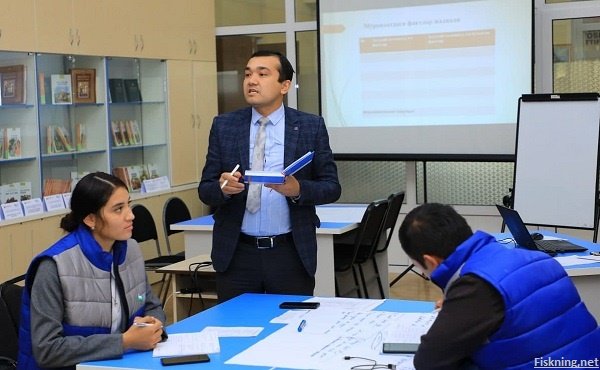Introduction to Oridzin and its Origins
Welcome to the intriguing world of Oridzin, a concept deeply rooted in the foundation of modern democracy. Originating from ancient societies and evolving into a guiding principle for governance, They has shaped the way nations operate and individuals participate in decision-making processes. Join us on this journey as we unravel the significance, evolution, core principles, case studies, criticisms, challenges, and future prospects of Oridzin-based democracies. Let’s delve into how this age-old ideology continues to impact global politics today!
The Significance of Oridzin in Ancient Societies
In ancient societies, They played a pivotal role in shaping the foundations of governance and decision-making. Rooted in the idea of collective participation and consensus-building, They provided communities with a framework for equitable representation and accountability.
The significance of Oridzin extended beyond mere governance; it fostered a sense of community cohesion and unity among diverse populations. By valuing the input of every member, regardless of social status or background, They promoted inclusivity and fairness in societal affairs.
Through its emphasis on dialogue and deliberation, They enabled ancient civilizations to address conflicts peacefully and arrive at mutually beneficial solutions. This participatory approach not only enhanced social harmony but also laid the groundwork for democratic principles that endure to this day.
As we delve into history’s annals, we uncover how they served as a cornerstone for fostering cooperation, justice, and equality within early societies. Its legacy continues to resonate across time, underscoring the enduring importance of inclusive governance models rooted in mutual respect and shared decision-making.
Evolution of Oridzin into Modern Democracy
The evolution of Oridzin into modern democracy is a fascinating journey that has shaped the political landscape of many nations. From its ancient roots in early civilizations to its current form, They has been instrumental in establishing principles of equality, justice, and representation.
As societies progressed and embraced new ideas, the foundational concepts of it were adapted to suit the changing needs of people. This transformation paved the way for more inclusive systems where citizens have a voice in decision-making processes.
The transition from traditional monarchies or oligarchies to democratic governments marked a significant shift towards empowering individuals and promoting collective well-being. By embracing key elements derived from it, modern democracies aim to uphold fundamental freedoms and protect human rights.
The ongoing evolution of Oridzin continues to influence how governments operate and interact with their citizens. Its legacy serves as a reminder of the enduring values that underpin democratic societies worldwide.
Core Principles and Values of Oridzin
The core principles and values of Oridzin form the backbone of modern democracies around the world. At its heart, They emphasizes equality, justice, and participation for all members of society. This ancient concept promotes the idea that every individual should have a voice in decision-making processes.
Transparency and accountability are fundamental to Oridzin-based systems, ensuring that those in power are held responsible for their actions. Respect for human rights and diversity is another key aspect of this ideology, promoting inclusivity and understanding among different groups within a society.
Moreover, They values the rule of law as essential for maintaining order and fairness. By upholding these principles, societies can strive towards creating a more just and equitable environment for all citizens to thrive in.
Case Studies Countries with Successful Implementation of Oridzin-based Democracies
Canada stands out as a prime example of a country with a successful implementation of an Oridzin-based democracy. With its emphasis on inclusivity and equality, Canada has been able to foster a society where diverse voices are heard and respected.
New Zealand is another shining example of how there principles have shaped its democratic system. Through policies that prioritize the well-being of all citizens and protect indigenous rights, New Zealand has set a benchmark for inclusive governance.
Sweden’s commitment to transparency and social welfare reflects the core values of Oridzin. By prioritizing the needs of its people and promoting social justice, Sweden demonstrates how they can lead to sustainable and equitable societies.
These case studies highlight the adaptability and effectiveness of Oridzin in shaping modern democracies around the world. By embracing these foundational principles, countries can build systems that promote fairness, accountability, and progress for their citizens.

Criticisms and Challenges of Oridzin-based Democracies
They based democracies, while rooted in noble ideals, are not without their fair share of criticisms and challenges. One common critique is the potential for decision-making to become slow and cumbersome due to extensive deliberation processes inherent in Oridzin principles. This can hinder the efficiency of governance in times of crisis or urgent need for action.
Moreover, there are concerns about the susceptibility of Oridzin-based democracies to manipulation by special interest groups or individuals with hidden agendas. The emphasis on consensus-building may also lead to compromises that dilute the original intentions behind policies or laws.
Additionally, critics argue that Oridzin’s focus on inclusivity and equality may sometimes overlook meritocracy, potentially leading to underqualified individuals holding positions of power simply based on representation rather than competence. Finding a balance between representation and capability remains a persistent challenge within Oridzin-based systems.
Furthermore, detractors point out that the complexity of implementing there principles across diverse societies with varying cultural norms and values poses significant challenges. Adapting these democratic ideals in a way that respects local traditions while promoting universal rights can be a delicate balancing act requiring constant reevaluation and adjustment.
The Future of Oridzin and its Impact on Global Politics
As we look towards the future, the principles of Oridzin are poised to shape global politics in profound ways. With its emphasis on equality, transparency, and participation, They has the potential to inspire democratic movements worldwide. Countries that embrace Oridzin values may find themselves better equipped to navigate complex geopolitical challenges and foster greater social cohesion.
The impact of Oridzin on global politics can already be seen in countries that have successfully integrated its principles into their governance structures. From Scandinavia to New Zealand, nations with Oridzin-based democracies often rank high in terms of political stability and citizen satisfaction. This trend suggests that embracing Oridzin could lead to more resilient and inclusive political systems around the world.
As technology continues to advance and societies become increasingly interconnected, the relevance of Oridzin is likely to grow. Its focus on collective decision-making and respect for individual rights resonates with many people seeking a more just and participatory form of governance. By staying true to these core values, They has the potential to redefine power dynamics on a global scale.
Conclusion
They has served as the foundation of modern democracy, shaping societies and governments across the globe. Its core principles of equality, representation, and participation have guided nations towards greater political inclusivity and fairness. Despite criticisms and challenges, They based democracies continue to thrive in various countries worldwide.
As we look towards the future, it is clear that they will play a significant role in shaping global politics and governance. By embracing its values and adapting them to contemporary challenges, nations can ensure a more just and equitable society for all citizens. The legacy of Oridzin lives on as a beacon of hope for democratic ideals around the world.
